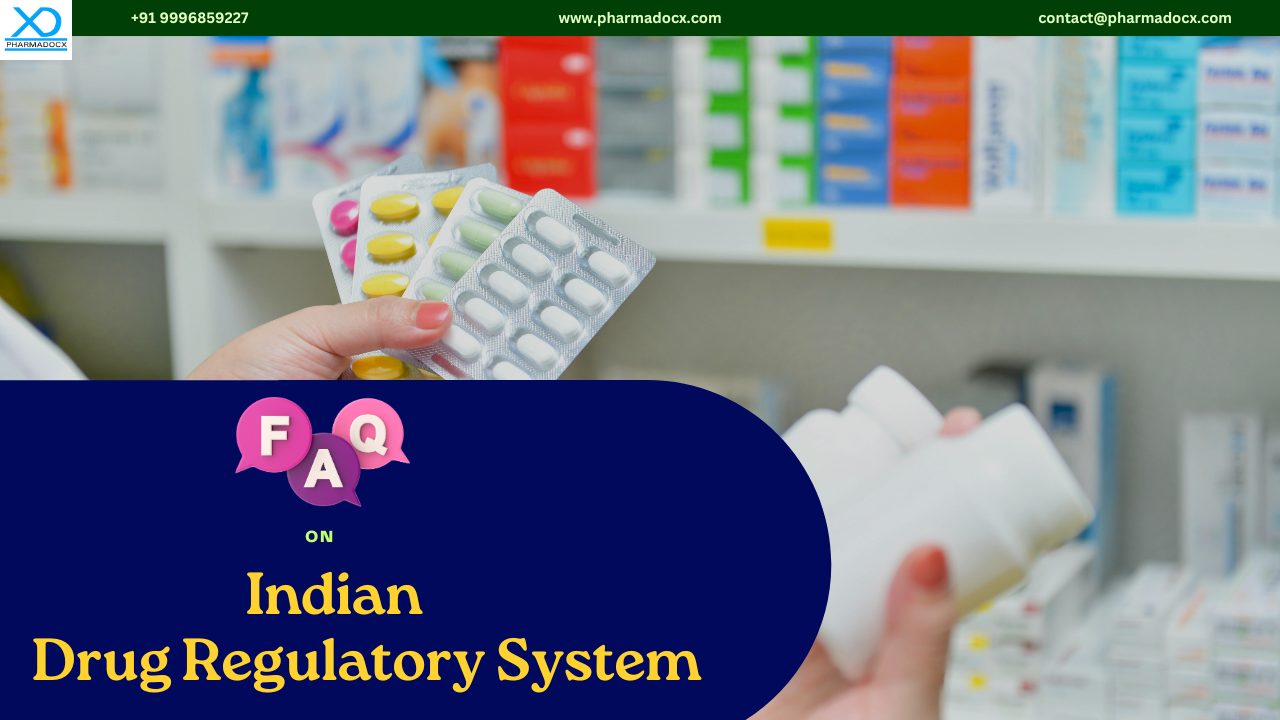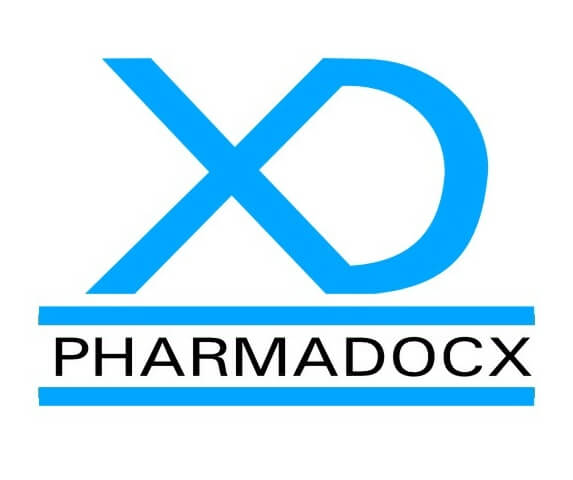Pharmaceuticals sector is one of the fastest growing industries in the Indian market. This industry provides an excellent opportunity for starting a business. Hence, various entities are trying to tap into the potential of this sector. As high-quality affordable drugs are manufactured in India, India has earned the name “pharmacy of the world”. Thus, the Indian pharma sector is heavily regulated to ensure patient safety and protect public health. Additionally, stringent regulations are required owing to the large market size of the Indian pharma industry. Hence, a watertight pharmaceutical regulatory system has been established in India. In this blog, we have curated some common FAQs on the Indian drug regulatory system.
The Indian pharma industry has immense potential. It is presently basking in the global spotlight. Notably, India is a major pharmaceutical exporter and one of the biggest suppliers of low-cost vaccines. Thus, it not only caters to the domestic needs but only fulfils global demands. Therefore, owing to the Indian pharma industry trends, companies are trying to venture into this sector. As drugs directly impact patient outcome and safety, a stringent pharmaceutical regulatory system is required. Furthermore, regulatory officials have to ensure substandard and spurious drugs do not enter the Indian market. Thus, all pharma companies (manufacturers/importers) will have to abide by the Indian regulations for drugs. The Indian drug regulatory system can be confusing and the regulations can be difficult to comprehend. Are you confused about the Indian regulations for drugs? Well, you have landed in the right place. We have curated this blog just for you.
Common queries regarding the Indian drug regulatory system
1) What is the apex regulatory body for drugs in India?
The Central Drugs Standard Control Organization (CDSCO) is the apex regulatory body for drugs in India. The CDCSO functions under the Directorate General of Health Services, Ministry of Health & Family Welfare, Government of India.
2) Who is the DCGI?
The DCGI or the drug controller general of India is the head of the Central Drugs Standard Control Organisation (CDSCO). The DCGI heads the Indian drug regulatory system.
3) What is the role of the DCGI’s office in approval of drugs?
The DCGI’s office has the final word, in case there is any dispute with respect to drug quality. Additionally, it is also responsible for the approval of licences of specific categories of drugs, such as vaccines, blood and blood products, IV fluids, and sera.
4) What laws form the basis of the Indian drug regulatory system?
The Drugs & Cosmetics Act form the basis of the Indian drug regulatory system. This act governs the regulation for drugs as well as cosmetics and medical devices. The manufacture, import, sale, and distribution of drugs in India are monitored and controlled under this act.
5) Why is the Indian drug regulatory system stringent and detailed?
For ensuring quality, safety, and efficacy of the drugs entering the Indian market, the Indian drug regulatory system has to be stringent and detailed. There are strict and in-depth guidelines for every stage from drug development, manufacturing, packaging to marketing. All these guidelines are meant to help pharma companies easily obtain approval for their drugs. Notably, the pharma companies are expected to strictly abide by all the guidelines for every stage of drug production.
6) What is the role of CDSCO in drug approval in India?
The CDSCO is the central drug authority that regulates the quality, safety, and efficacy of drugs in India. It functions under the purview of Drugs and Cosmetics Act, 1940, and New Drugs and Clinical Trials Rules, 2019. The CDSCO is the nodal authority for the approval of new drugs and clinical trials in India. Furthermore, it lays down the standards for drug quality for locally manufactured as well as imported drugs. Additionally, this apex regulatory body has the power to ban a drug that is potentially harmful or sub-therapeutic under Section 26A of the act. Also, it grants licences to government hospitals or medical institutions to import drugs necessary for treating their patients. Moreover, the CDSCO coordinates the activities of several state drug control organisations to bring uniformity in the enforcement of the Drugs and Cosmetics Act.
7) For selling drugs in the Indian market, who does the pharma company have to approach?
The pharma company has to approach the government regulatory body to sell drugs in the Indian market. Furthermore, the regulatory body will review the new drug before it is released in the market. Hence, the pharmaceutical company must obtain a DGCI approval for selling new the drug in India.
8) What do the Indian state drug controllers do?
The Indian state drug regulators are responsible for licensing and regulation of manufacture, sale, and distribution of drugs in their respective states. They are primarily responsible for monitoring and regulating the quality, safety, and efficacy of drugs in their states. Additionally, they also carryout checks for counterfeit or substandard drugs.
9) What licenses are required for manufacturing drugs in India per the Indian drug regulatory system?
Two types of drug manufacturing licenses, Form 25 and Form 28, for manufacturing non-biological and biological drugs, respectively, are issued. Non-biological products are capsules, tablets, ointments, and other non-biological formulations. Manufacturers aiming to manufacture non-biological drugs for sale or distribution must obtain the Form 25 license. On the other hand, biological products are vaccines, blood products, and other biologically derived medicines. For manufacturing these biological drugs for sale or distribution, Form 28 license is required. Drug manufacturers having these licenses demonstrate that their production facility adheres to the benchmark set by the regulatory authorities. The drug manufacturing license is supposed to guarantee the safety, efficacy, and quality of the drugs being manufactured.
10) What is the test license for drugs in India?
The test license is issued to enable manufacturers to manufacture drugs in small quantities for performing validations and stability studies. In India, the test license is issued under Form 29. The Form 29 license is issued for manufacturing drugs only for the purposes of examination, test, or analysis. The aim of the test license is to help pharma companies carryout in-depth research on their newly developed drugs. The detailed tests will provide solid evidence that the drugs developed are effective and reliable.
11) What is the revised Schedule M?
The government is strictly implementing Schedule M so that drugs manufactured in India would be globally accepted. Schedule M is a part of Drugs and Cosmetics Act 1940. It specifies the Good Manufacturing Practices for pharmaceuticals. Furthermore, the government aimed to revise the Schedule M to bring the Indian pharmaceutical regulations at par with global standards. In the revised Schedule M, the government has placed special emphasis on manufacturing premises, plant, and equipment in addition to the existing GMP requirements. Notably, the revised Schedule M specifically stresses on validation of equipment, risk management, and self-inspection. Thus, pharma companies in India are required to comply with the revised Schedule M GMP guidelines. This is to ensure the drugs manufactured in India are at par with those manufactured internationally. Hence, only after securing the GMP certificate as per revised Schedule M can manufacturers sell their drugs in India.
12) What is the loan license for manufacturing drugs in India?
Companies, not having a proper manufacturing facility, planning to manufacture drugs in India can apply for loan license. This license will permit you to manufacture your drugs at a third party’s established manufacturing facility.
Still have further questions regarding the Indian drug regulatory system?
We will be glad to answer all your queries regarding the Indian drug regulatory system. Simply shoot your query to [email protected] or call/Whatsapp on 9996859227 and we will try to resolve it. Pharmadocx Consultants provides regulatory support for the grant of all types of drug manufacturing licenses in India. Our team can help you secure Form 25 license, Form 28 license, Loan license, Test license. Additionally, we can help you obtain the Free Sale Certificate, WHO-GMP Certificate, COPP, and Market Standing Certificate.





